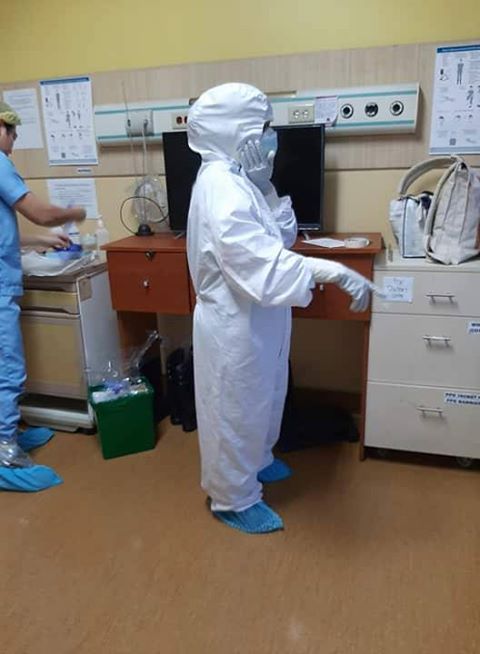
The survey revealed that health workers are working in “excessively long hours while earning very little pay.”
Related story: Based on science? Gaps seen in government’s COVID-19 data
By JANESS ANN J. ELLAO
Bulatlat.com
MANILA – More than three months since the first confirmed case in the country, health workers still lack protection during this pandemic, a study revealed.
Paul Quintos, senior lecturer of the University of the Philippines’ National College of Public Administration presented survey among frontliners that aimed to revisit why there is a very high incidence of confirmed cases among their ranks.
“The survey confirmed what health workers and advocates have long been saying. It is not just about flattening the curve but also about raising the bar and the strengthening of our public health system,” Quintos said in a recent webinar hosted by the Citizens’ Urgent Response to End COVID-19.
This, he said, includes “taking care of our health workers so they can take care of us.”
The survey by the Alliance of Concerned Teachers and the Alliance of Health Workers looked into the working conditions of health workers. Quintos found it alarming that 19 percent of the total confirmed cases are frontline health workers, who serve as the “backbone” of the country’s health system.
Conducted between April 24 to May 3, 2020, it had 487 online survey respondents, of whom 457 were considered valid.
Poor pay, protection for health workers
The result of the survey showed that more than half of the respondents said their health facilities “do not meet even half of what they perceive as the adequate number of health personnel and the sufficient number of infection, prevention and control (IPC) supplies and personal protective equipment (PPE).”
Two-thirds of their respondents, too, believe there is “severe lack of doctors, nurses and nurse assistants as well as administration and utility personnel in their health facilities.”
Earlier, health workers have called on the Philippine government to immediately fill up plantilla positions in the health department to address the chronic understaffing in the public health system that the COVID-19 has aggravated. This, the Filipino Nurses United said, could lessen the exposure of frontliners to COVID-19 patients.
Read: Nurses push for mass hiring, safe space amid increasing COVID-19 cases
The survey revealed that health workers are working in “excessively long hours while earning very little pay.”
A sizable portion of the respondents – 29 percent – said they worked more than 45 hours per week, with 6.6 percent of them working for more than 90 hours per week. This is in stark contrast with the pay they are receiving. One in every five health workers are getting below P15,000 a month while nearly half of the respondents are receiving salaries between P15,000 to P30,000.
Health workers in the public sector have long been pushing for a P16,000 national minimum wage, a P30,000 entry-salary for nurses, and the scrapping of contractualization among their ranks.
Read: Contractualization, poor pay continue to hound health workers
Respondents also decried the shortage on personal protection equipment, most especially N-95 masks. The survey noted that there are hospitals that do not even have as basic as water to provide for their health workers and patients.
Part of protecting health workers is also the provision of regular testing. However, respondents said only 42percent of symptomatic health workers and 30 percent of asymptomatic health workers were tested. This includes those in Metro Manila – the epicenter of the pandemic in the country.
Rights and welfare
Majority of the respondents said the Philippine government has yet to provide the rights and safeguards that the World Health Organization (WHO) has listed earlier.
“Close to half of health workers said that most of their rights are rarely/inadequately or not at all implemented. For most of the rights and safeguards listed, just a little over half of respondents indicate that they are implemented most or all of the time,” the result of the survey read.
Among the rights and safeguards that the WHO listed are: provision of PPEs and training on occupational safety, maintaining of appropriate working hours with breaks, and access to mental and counseling resources, to name a few.
“Part of upholding the rights of health workers in involving them in decision-making,” said Quintos.
The fact that upholding the rights of health workers is “not an overwhelming majority” is “alarming,” according to the survey.
As of this writing, 27 health workers in the Philippines have died of COVID-19.
The post Study reveals poor protection for health workers amid fight vs. COVID-19 appeared first on Bulatlat.
